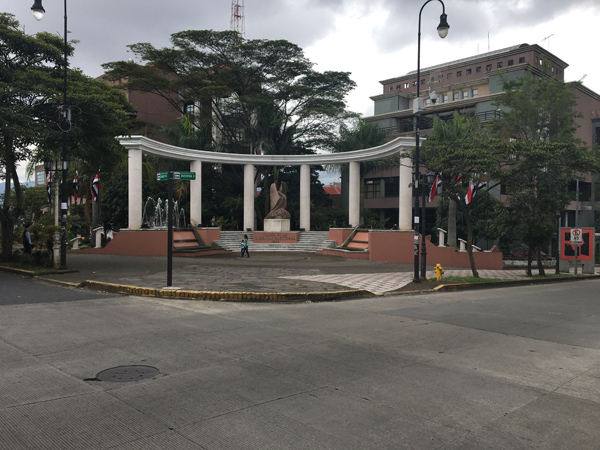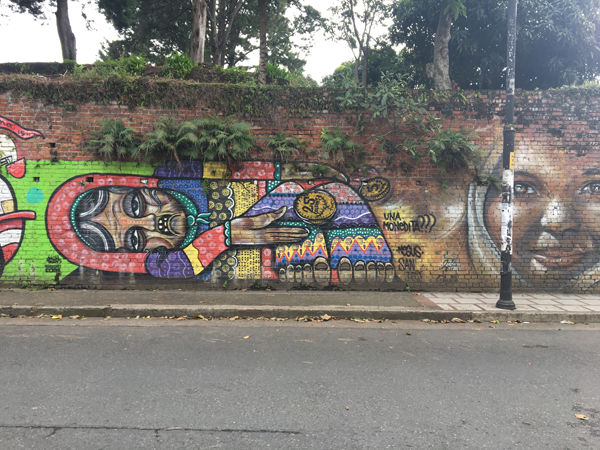The 2016 Costa Rica International Film Festival kicked off with an impressive retrospective for Kelly Reichardt, including her latest and potentially most acclaimed film to date, Certain Women. The festival has cherry picked a number of notable titles from the 2016 circuit to showcase as well, including Paul Verhoeven’s Elle, Nicolas Pesce’s The Eyes of My Mother, Maren Ade’s Toni Erdmann, Asghar Farhadi’s The Salesman, Joao Pedro Rodrigues’ The Ornithologist, and several others.
Considering the unforeseen but predictable snafus involving international travel, the ride into San Jose ended up being incredibly pleasant (beginning with a jovial driver who conversed with me about local goods, such as how the pineapple has eclipsed coffee as one of Costa Rica’s favored exports, and how the presence of Starbucks seems counterintuitive since they have to ship their own product into a country where it’s already available and much less expensive—oh, and crocodiles have become a recent problem on Costa Rica’s beaches, which isn’t a problem in the landlocked capital, of course).
Following a warm meet and greet upon check-in, I was ushered to an incredibly serene space dedicated to the festival, where credential collection was followed by espresso and a local (and delicious) offering of handmade tamales. Gigantic plush square pillows for lounging and the whimsical addition of swings assisted with a tone of tranquility rare for an international film festival, where access to prominent festival programmers as well as visiting talent feels fostered organically.
Sharing drinks with producer Sunmin Park (here with her latest film, Thithi from director Raam Reddy, which won Best First Feature and a Golden Leopard – Filmmakers of the Present award at Locarno 2016) and Paul Hamy (star of Rodrigues’ excellent The Ornithologist, who discussed upcoming projects, as well as anecdotes on working with Rodrigues, as well as earlier experiences with names like Catherine Deneuve and Philippe Grandrieux), made for a scintillating and unexpectedly enjoyable evening before sitting down to watch the directorial debut of Ecuadorian director Ana Cristina Barragan, Alba at the Teatro De La Aduana (a venue which feels similar to L.A.’s Redcat Theater or Sundance’s The MARC in Park City). Afterwards, I ran into Kika Magalhaes, the Portuguese actress who starred in Pesce’s The Eyes of My Mother (who verified an unstated inkling I had about her character in the film), as well as producer Todd Remis (Always Shine; Magic Magic).
Barragan’s debut concerns the troubled preadolescence of a titular 11-year-girl (played by newcomer Macarena Arias), a withdrawn and precociously sullen child thanks to problems at home pertaining to her mother’s (Amaia Merino, who had bit parts in notable items like Julio Medem’s The Red Squirrel and Monte Hellman’s Iguana) health. Seemingly the only person aware of her mother’s alarming, rapid decline, little is gleaned from their infrequent conversations. When her mother requires hospitalization, she is forced to live with her father Igor (Pablo Aguirre, who rather resembles the British actor Noah Taylor), a man who looks as if he’s survived significant trials and travails. Quietly and methodically, Alba begins to rebel against her current situation, desperate to obtain a sense of normalcy in her continually fractured universe.
Initially, Alba plays rather like an incredibly oblique and austere version of something like Mean Girls or #Horror, films depicting intelligent yet fiercely independent young women forced to contend with the cruelty of their young peers. Barragan’s film is mostly a silent universe, heavily laden with symbolism in her brooding frames, which mostly focus on the facial expressions of young Arias, who rarely smiles, but when she does so manages to exert a hopeful reprieve from to the film’s omnipresent bleakness. Other girls at school taunt her for her shyness, and yet she’s allowed to tag along as a low-hanger at certain social functions, including as a member of a dance group rehearsing choreography for a public performance (think Sparkle Motion).
Barragan sets up number of motifs, including Alba and her connection to nature, such as with a ladybug and a moth—the former is used to signify Alba when a ladybug is being devoured by a horde of ants (perhaps to express Alba’s relationship to her peers), and the latter is used cruelly as one of Alba’s tests during the usual bland cruelties children evoke when playing truth or dare. Blood is also an important metaphor, first as the natural course of events when Alba experiences her first period in the public pool where her father works, and as a sign of extreme duress via constant nosebleeds, which leads up to an instance effectively used to signify Alba’s eventual discovery of her agency. Early in the film, a telling dialogue between Alba and her mother finds the young girl wearing her mother’s perfume and lip gloss, items which her mother finds unattractive on Alba, even commenting she dislikes her daughter’s hair, even though it’s the same as her own. Alba processes the experience by treating her father the same way, despising or altering anything similar between them (a mole on her chest), but later comes to a realization of her father’s humanity during one of their more touching moments on a trip to the beach, when he relates a story of cruelty from his youth involving a jar of tadpoles.
Unique in its strong characterization without being predicated with Grand Guignol flourishes (you might be expecting something horrid to come out of nowhere, in the tradition of Breillat or Michel Franco), but Barragan stays true to the spirt of the material and her empathetic protagonist up until its touching final frames.





